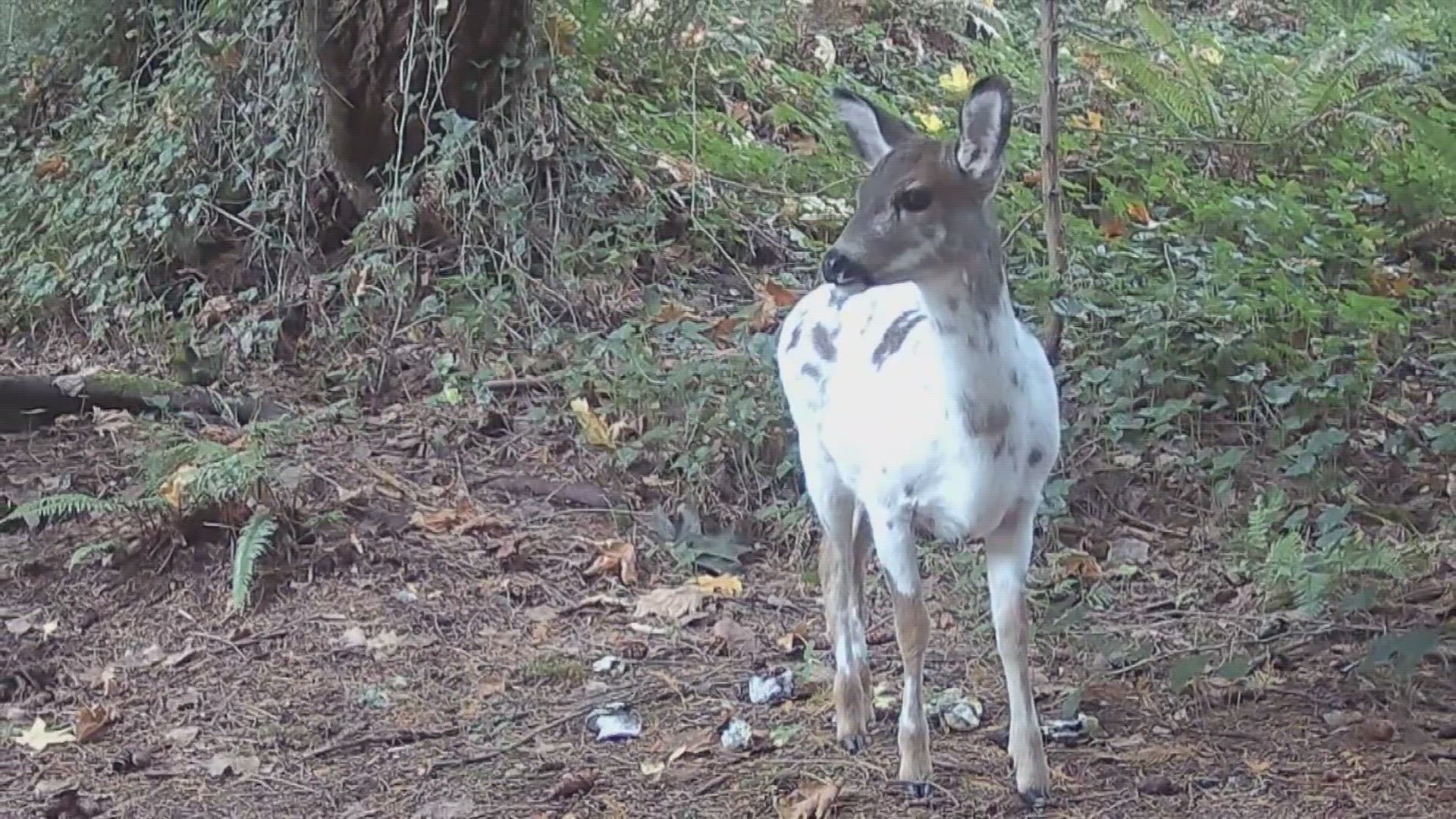MIRRORMONT, Wash. — After Tacoma Public Utilities reported a sighting of a piebald deer in the Upper Green River Watershed, Washingtonians began posting about their sightings of piebald deer.
Kyle Garrison, the ungulate (hoofed animal) section manager for the Washington Department of Fish and Wildlife, says they're somewhat uncommon, but WDFW receives many reports because of their fascinating appearance.
"It's a fairly rare condition," Garrison said. "If you get to see one, appreciate it, it's always interesting to see these animals and wonder in the magnificence of this condition."
WDFW says the piebald condition comes as a result of recessive genes and appears to impact less than 1% of deer.
"It's a different kind of coloration for deer and when people see something that's different or that stands out to them, they get excited by that," WDFW Coastal Region Communications Specialist Bridget Mire said. "It's always a treat to see these differently colored animals- sometimes we'll see albino deer, which have no pigment at all, and more commonly these."
Mire says the brown coloration of deer helps with camouflage, so piebald deer can at times be at a disadvantage. On the flip side, it can make them more visible on the roadside, preventing them from getting hit.
Shae Xie and Leo Hou saw a typically-colored mother and her piebald young multiple times in the Mirrormont neighborhood.
"I saw the mother deer and I thought, 'Wow, she's beautiful and I need to stop so that I don't scare her', so I stopped there and then I saw the deer, the baby deer," Hou said. "It was so cute."
Xie says she's hopeful the deer and its habitat will be protected. While WDFW says hunting piebald deer is legal with appropriate licensing, she hopes no one will choose to do so as she loves the unique sight in her area.
"Hopefully people will try our best to protect them, to protect this habitat, so we can see more animals like this," Xie said.

